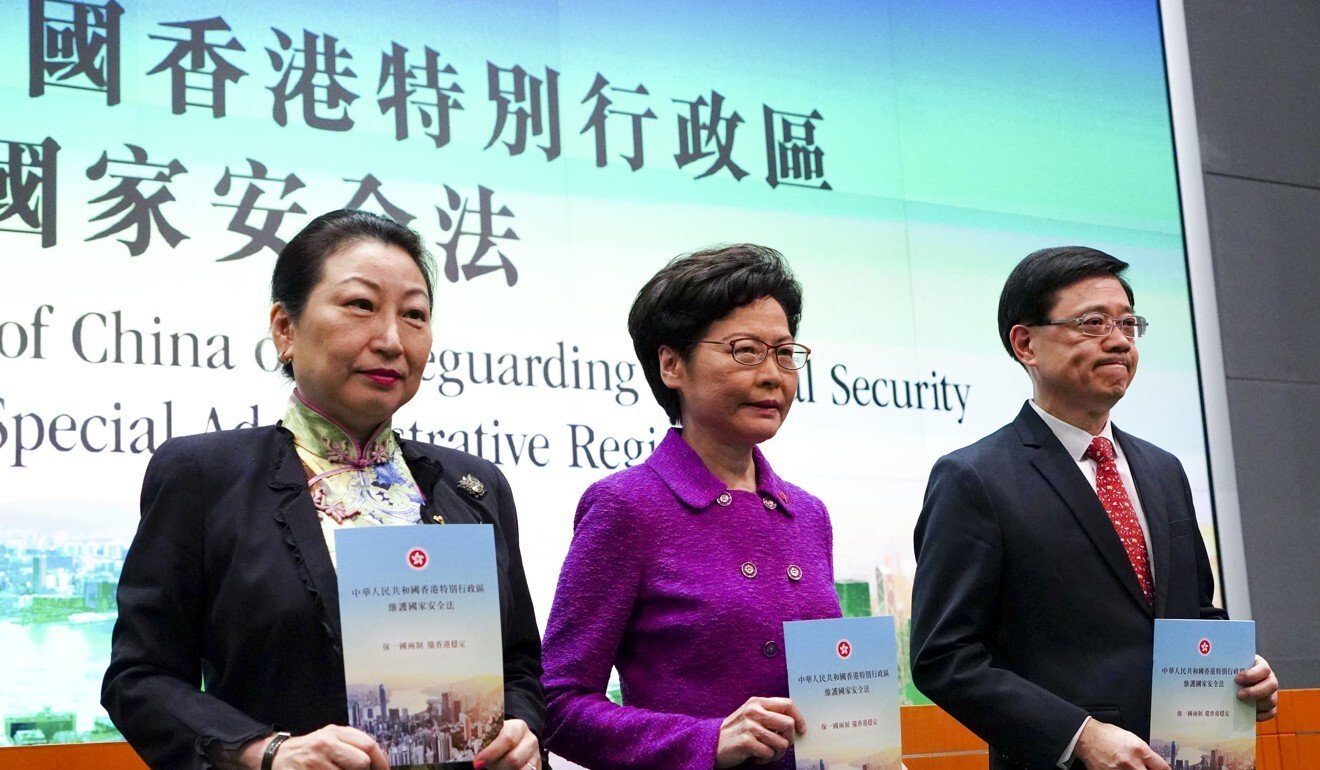Hong Kong News

Justice minister takes aim at media over ‘unfair criticism’ of national security law
Hong Kong’s justice minister has hit out at the media over “unfair criticisms” against the Beijing-decreed national security law, insisting it had encouraged investment and commerce.
Secretary for Justice Teresa Cheng Yeuk-wah made a lengthy rebuttal to the claims during an online forum on Monday, in which she was to discuss arbitration in the context of the Belt and Road Initiative.
Cheng said it was “wrong and unfair” to claim the law – which prohibits acts of secession, subversion, terrorism and collusion with foreign forces – had undermined the city’s autonomy. She pointed a finger at an unspecified media outlet for commenting on the interpretation of the law in relation to an ongoing sedition case
“I urged the public to refrain from coming to a conclusion … [and] to wait for the decision and reasoning of the court,” she said.

At least 31 people have been arrested under the national security law since it was imposed by Beijing on June 30, with media tycoon Jimmy Lai Chee-ying and young activist Agnes Chow Ting among them.
The Department of Justice, which co-organised the forum, declined to respond to a request for clarification as to which sedition case and media outlet Cheng was singling out. A government source familiar with the situation said Cheng was referring to reports by an “international media organisation”.
The minister also blamed the press for claiming the chief executive was “assigning” judges to deal with national security cases.
“Nothing is further from the truth,” she said. “The chief executive designates a number of judges to form a list that will deal with national security cases. In other words, a list of specialised judges is to be formed.”
Using certain jurists for specific cases was common in other jurisdictions and could help them become specialists in a particular area, she said.
Lawyers and scholars have argued the arrangement of choosing judges undermines the independence of the judiciary.
But Cheng cited a Court of First Instance judge who handled the case of Tong Ying-kit, the first person charged under the security law, as proof there was “no proper and sufficient basis” to suggest the city’s leader was in a position to interfere in matters directly related to judicial procedure.
“Malicious attacks” had been made claiming the new law had jeopardised the city’s judicial independence, she said,
“The national security law has brought stability and certainty back to our society, and prevented acts that could endanger national security … thereby encouraging commercial and investment activities,” Cheng said. That claim echoed the view Chief Executive Carrie Lam Cheng Yuet-ngor expressed in her policy address last week that the law had been “remarkably effective in restoring stability”.
Observers have said the law has created a chilling effect on the free speech of academics, the media and members of the opposition camp.
The chairman of the Hong Kong Journalists Association, Chris Yeung Kin-hing, said general criticisms by the media over the law in relation to controversial cases should be well within the bounds of what was permissible.
“If the authorities have concerns that remarks by the media constitute contempt of court, they should specify the situation clearly instead of making unspecified, broad accusations against the whole industry,” he said.
Article 4 of the security law states that the freedom of the press enshrined in the city’s mini-constitution, the Basic Law, will be protected.











